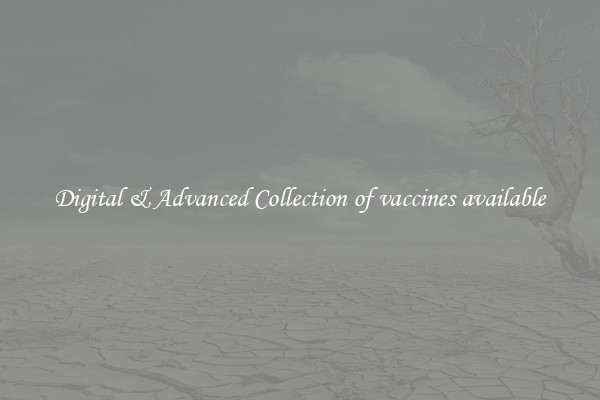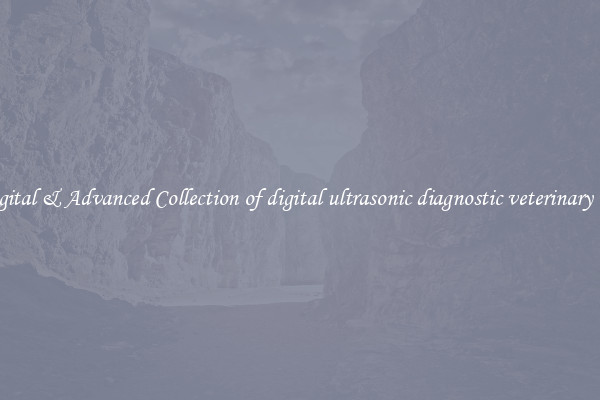Digital & Advanced Collection of vaccines available
Digital & Advanced Collection: Revolutionizing Vaccine Administration

Vaccinations play a vital role in preventing the spread of infectious diseases and protecting public health. With the advent of digital technology, the collection and administration of vaccines have undergone a revolutionary transformation. This new system brings numerous advantages, including enhanced efficiency, accuracy, and accessibility, ultimately leading to improved healthcare outcomes.
One of the key benefits of digital and advanced collection of vaccines is the elimination of manual paperwork. Traditionally, healthcare providers had to rely on paper records, which were not only time-consuming but also prone to errors. However, the digitization of vaccine administration has streamlined the process by allowing medical professionals to record vaccine administration electronically. This eliminates the need for manual data entry, reducing the chances of transcription errors while saving time and effort.
Moreover, digital platforms enable real-time data collection and monitoring. Healthcare providers can capture and update patient information electronically, ensuring that the data is up-to-date and accessible to authorized personnel. This real-time tracking is particularly beneficial during disease outbreaks or vaccination campaigns, as it enables efficient allocation of resources and timely interventions. Additionally, the availability of accurate and timely data aids in policy-making and long-term planning for healthcare institutions and governments.
The digitalization of vaccine administration has also facilitated better inventory management. Vaccines have specific storage requirements, including temperature control, and any deviations can render them ineffective. Digital systems enable automatic monitoring of vaccine stocks, alerting healthcare professionals when stocks are running low or when temperature thresholds are exceeded. This proactive approach ensures the availability of vaccines when needed and minimizes the risk of administering compromised doses to patients.
Furthermore, the advanced collection of vaccines has expanded access to healthcare services, especially in remote and underprivileged regions. With the help of digital tools, healthcare workers can reach populations that were previously underserved due to geographical or socioeconomic barriers. Mobile applications, for instance, allow for the collection of vaccination data in the field, eliminating the need for cumbersome paperwork. This breakthrough technology empowers healthcare providers to extend their services to even the most remote corners of the world, ensuring that no one is left behind.
In conclusion, the digital and advanced collection of vaccines has transformed the way vaccines are administered and managed. The integration of digital platforms has eliminated paperwork, enhanced efficiency, and improved data accuracy. Real-time monitoring, inventory management, and expanded access to remote areas are just some of the many advantages this technology offers. As we continue to face global health challenges, the innovative use of digital tools will play a crucial role in optimizing vaccination programs and safeguarding public health.

View details

View details

View details

View details








